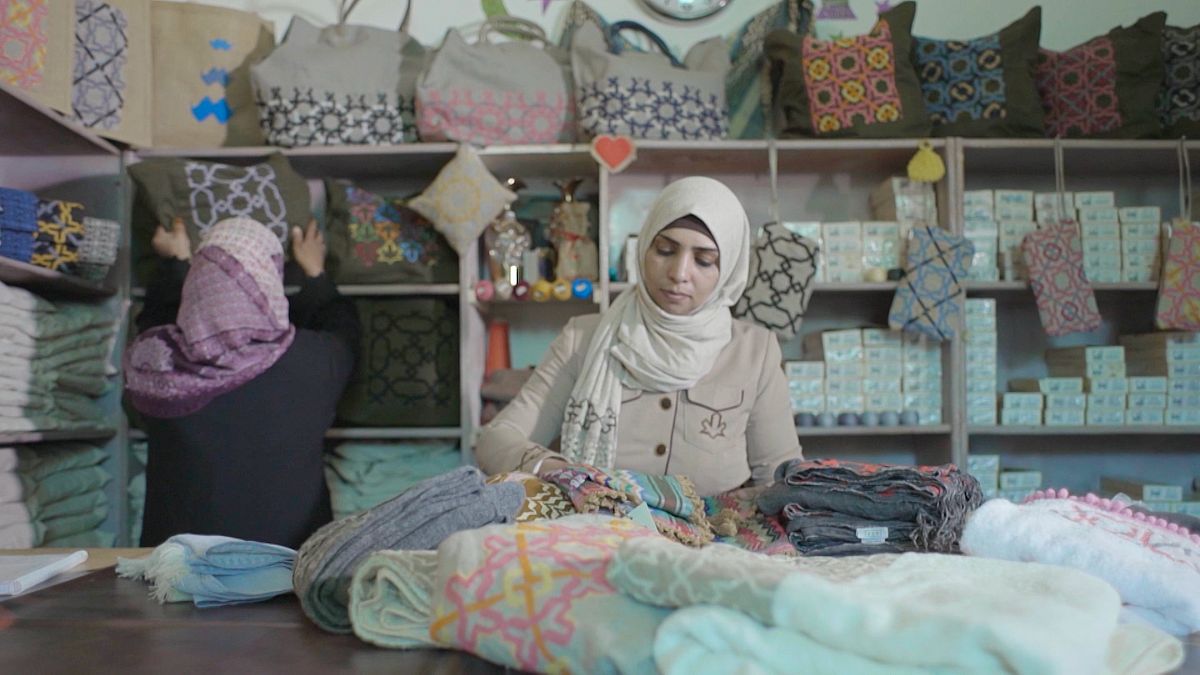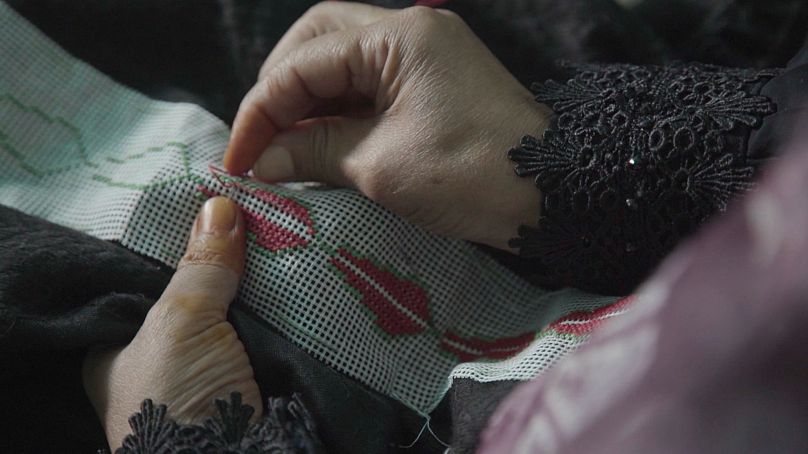The Middle East and North Africa e-commerce market was worth $8.3 billion in 2017, according to a Bain and Company report.
The Middle East and North Africa e-commerce market was worth $8.3 billion in 2017, according to a Bain and Company report.
It has an average annual growth rate of 25 percent, which is slightly ahead of the global average, the report states.
The GCC and Egypt account for about 80 percent of the region’s market.
During the COVID-19 pandemic, a rise in digital activity benefited e-commerce companies across the MENA region, including the Social Enterprise Project (SEP) in Jordan.
The fashion and lifestyle brand, which also has physical boutiques in cities like Geneva and London, employs around 560 women to create its merchandise.
They are mostly Palestinians from Gaza, living in the Jerash refugee camp.
Ex-Gazans make up a small percentage of the country’s two million Palestinian refugees, who live on less than two dollars a day, according to a UN report.
SEP’s overarching aim is to create sustainable paths to economic independence for hundreds of such women and their families.
The artisans create hand-stitched accessories using traditional Palestinian geometric-style embroidery.
Empowering business
Designs by the ladies can earn them up to $200 a month.
“Now I rely on myself. I don’t need anything from anyone,” says Haleema Al Ankasoori, a Gazan mother and artist. “We’re taking our dues from our work, payment and education,” she told Euronews’ Salim Essaid.
Before the pandemic, online sales made up around 20 percent of the company’s estimated 5,000 annual transactions.
From March to June of this year, SEP’s online sales nearly doubled.
Since the company’s 2013 launch, the brand has used the human story behind each product to attract customers.
“We are using internet tools to connect better with customers by making their experiences more personal,” explains SEP project manager, Waseem Salameh, “By showing them how the item is made and by whom.”
As a result, SEP’s best-selling product, the keffiyeh, or traditional headdress-scarf, has made a Netflix appearance.
One of the hand-crafted pieces was worn by Dembe Zuma, the lead character in the series ‘The Blacklist’.
Influencing customers
Also creating more human-interaction for online retail experiences, are social media content creators Balkis Ksouri and Samy Chaffai in Tunisia.
The public figures, in their early twenties, work with brands to reach an approximate combined Instagram following of two million people.
They believe this directs the purchasing power of their viewers.
Chaffai, who is an aspiring filmmaker while also studying for a doctorate, believes that shoppers are looking for relatable content from people they trust, wrapped up in an entertaining package.
“I like to combine cinematic experience with realness and with authenticity,” he explains. “I have to respect what my partner wants me to do, and I have to stay honest to my community.”
Chaffai and Ksouri say the glamour of their work doesn’t always match their earning potential, with an average monthly income ranging from nothing to $2,000.
Despite this, Ksouri dropped out of university to create content full time. Nevertheless, many Tunisians, she says, still don’t take her work seriously.
“We are not considered as people with real jobs,” remarked the content creator known as Beki to her fans, from her YouTube channel ‘Beki’s world’. “So, it’s sad and humiliating in a way,”
Ever the optimist, Ksouri is hopeful that her followers will continue to support her, even when others in society may not.
SEEN ON SOCIAL MEDIA: MOTHERHOOD AND ENTREPRENEURSHIP
Slovak Michaela balances life as a new mother and an entrepreneur.


